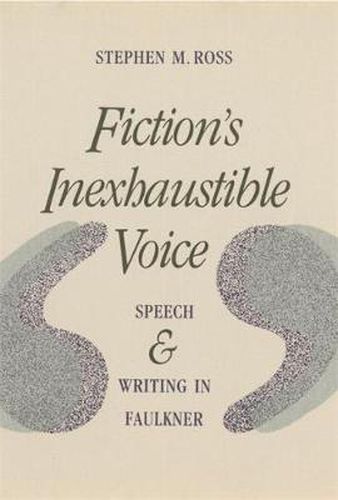Readings Newsletter
Become a Readings Member to make your shopping experience even easier.
Sign in or sign up for free!
You’re not far away from qualifying for FREE standard shipping within Australia
You’ve qualified for FREE standard shipping within Australia
The cart is loading…






Ross uses theoretically grounded notions of voice to propose new ways of explaining how Faulkner’s novels and stories express meaning, showing how Faulkner used the affective power of voice to induce the reader to forget the silent and originless nature of written fiction. Ross departs from previous Faulkner criticism by proceeding not text-by-text or chronologically but by constructing a workable taxonomy, that defines the types of voice in Faulkner’s fiction: phenomenal voice, a depicted event or object within the represented fictional world: mimetic voice, the illusion that a person is speaking psychic voice, one heard only in the mind and overheard only through fiction’s omniscience: and oratorical voice, and overtly intertextual voice that derives from a discursive practice - Southern oratory - recognizable outside the boundaries of any Faulkner text and identifiable as part of Faulkner’s biographical and regional heritage.
$9.00 standard shipping within Australia
FREE standard shipping within Australia for orders over $100.00
Express & International shipping calculated at checkout
Ross uses theoretically grounded notions of voice to propose new ways of explaining how Faulkner’s novels and stories express meaning, showing how Faulkner used the affective power of voice to induce the reader to forget the silent and originless nature of written fiction. Ross departs from previous Faulkner criticism by proceeding not text-by-text or chronologically but by constructing a workable taxonomy, that defines the types of voice in Faulkner’s fiction: phenomenal voice, a depicted event or object within the represented fictional world: mimetic voice, the illusion that a person is speaking psychic voice, one heard only in the mind and overheard only through fiction’s omniscience: and oratorical voice, and overtly intertextual voice that derives from a discursive practice - Southern oratory - recognizable outside the boundaries of any Faulkner text and identifiable as part of Faulkner’s biographical and regional heritage.